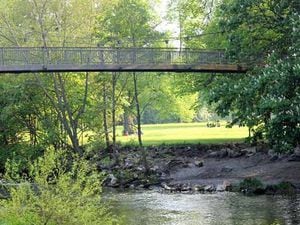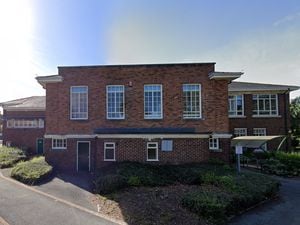Council joins board to develop ambitious plan to tackle major River Severn flooding
Moves to start the conversation to find an approach to ease the impact of flooding on a large swathe of Montgomeryshire, have been backed by senior Powys councillors.

In recent years, many parts of Powys, especially in the north of the county around Welshpool and onwards towards Llanymynech, have been cut off due to flooding of the Severn and Vyrnwy rivers caused by heavy rainfall.
A strategy is worked on which brings all the relevant agencies and authorities from both sides of England and Wales border together under one umbrella to deal with flooding issues.
The work to lessen the impact of flooding is essential as it is predicted that by 2050 the River Severn could be 0.85 metres higher than it was in 2020.
By the year 2100 it could be as much as one metre higher than 2020.
Since 2019 work on the Severn Valley Water Management Scheme has been going on behind the scenes, and members of both Powys and Shropshire Council are now being invited to join the project board and move the work forward.
Shropshire Council's cabinet approved its decision last week.
Cabinet member for a safer Powys, Liberal Democrat councillor Richard Church, said: “This project has implications for safety in terms of preventing flooding in the Severn catchment area and also in enhancing biodiversity.
“The proposal is that we join a project board that is being set up by the Environment Agency which is the equivalent of Natural Resources Wales in England.
“Shropshire Council have also been invited to join that board.”
Councillor Church said that work reached the point where there is a need to consult on “ideas” to alleviate flooding in the Severn Valley.
He added that proposals could include water management schemes which can be used to reduce flooding downstream.
Councillor Church said: “Flooding is not just a problem for us in our part of the Severn but for many more thousands of people downstream.”
He added that it could also mean “holding back” water for use during drought periods.
Councillor Church said: “This could be a great project to help tackle this problem and help meet our objectives as a greener Powys.”
Cabinet member for a greener Powys, Liberal Democrat councillor Jackie Charlton, seconded the proposal and said that this was a “very exciting point” in the project, as the decision being asked of Cabinet would be to “formalise” collaboration on both sides of the border.
Director of economic development and growth Diane Reynolds, explained that £10 million has been set aside by the UK Government Department for Environment Food and Rural Affairs (DEFRA) to develop the strategy and start “ongoing engagement” with communities in the catchment area,
Mrs Reynolds said: “The whole of the UK is watching this programme to see how it could be developed elsewhere.”
Education portfolio holder, Liberal Democrat councillor Pete Roberts said that flooding where the Vyrnwy joins the Severn which is near the villages of Llanymynech, Four Crosses, Llandrinio and Crew Green creates “significant” problems at times in getting children from home to school.
He hoped that councillors representing these parts of Powys would push the benefits of taking part in the consultation process to their communities.
Councillor Roberts said: “It would bring some real benefits to people using the A483 corridor and hopefully mean Crew Green and the area are accessible from Four Crosses rather than the long way round through Ford or over the Breiddens.”
Cabinet voted unanimously to approve the report.





